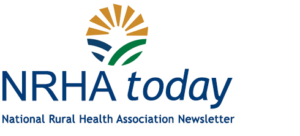January 22, 2024

NRHA Webinar – Developing a Strong Threat Management and Governance Program in Rural Healthcare and Beyond, January 30
In today’s complex healthcare landscape, effective threat management stands as a vital element in delivering quality care. This tailored webinar is crafted for rural healthcare executives to explore essential practical strategies to fortify security measures, protect patient data, and ensure the resilience of healthcare systems in rural settings.
Learning Objectives:
- Identify and assess the distinct threat landscape in rural healthcare settings, understanding the specific challenges and vulnerabilities faced
- Explore practical best practices in proactive threat management, focusing on identification, assessment, and mitigation of risks in rural healthcare systems
- Implement effective governance control measures tailored for rural healthcare organizations to ensure compliance and robust security protocols
- Acquire actionable strategies and tools to strengthen cybersecurity resilience, addressing prevalent challenges of data breaches and cyber threats in rural healthcare contexts
- Integrate a comprehensive understanding of threat management into rural healthcare operations, empowering executives to fortify security measures and maintain quality care standards in their unique settings
When: Tuesday, January 30, 2:00 – 3:00 p.m. CST
Cost: No Cost
Register Here






